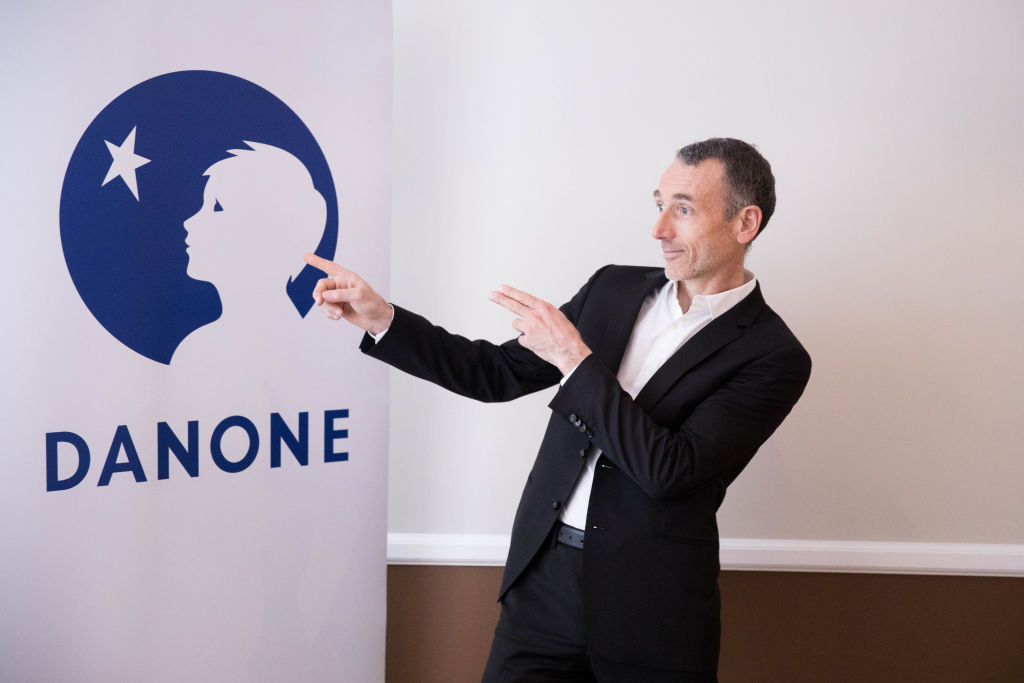
Busting the myths of M&A: 4 steps to success
Busting the myths of M&A: New research reveals why old merger strategies fail and how fresh thinking can lead to lasting value for both sides of the deal....

by Salvatore Cantale Published March 22, 2021 in Finance • 3 min read
Activist shareholding is a low-cost version of acquisition: you get the changes you want at a fraction of the cost.
Back in June 2020, Emmanuel Faber, former Chairman and CEO of Danone, probably felt pretty comfortable when he changed the French waters and yoghurt group’s legal status to an “Enterprise à Mission”, or a purpose-driven company.
A champion of responsible capitalism, the 57- year-old Faber said Danone had “toppled the statue of Milton Friedman” by becoming the first big quoted company in France to embrace and commit itself to a social mission. The move was praised internally, by some peers and by some suppliers. Paul Polman, Unilever’s former leader and a big ESG fan, was supportive.
But however worthy, Faber’s vision was not apparently shared by the whole organization, or at least its higher echelons.
Matters started unravelling in January, when Bluebell Capital Partners, an activist shareholder with an undisclosed stake (below the 5% disclosure level), started challenging Danone and its CEO on its dismal share performance compared with rivals like Nestlé and Unilever. Bluebell’s objections were not about Faber’s sustainability agenda itself, but his failure to strike the right balance between value creation for shareholders and sustainability.
Fast forward to 15 March and Faber, after an extraordinary board meeting on a Sunday, was out.
Beware the activist shareholder
Activist investors generally loom when companies get into difficulties. Since Faber, a Danone veteran, took over in October 2014, Danone’s share price has risen by just 3%, compared with more than 45% at Nestlé and 70% at Unilever over the same period.
Activists press for operating changes in the organizations they target to boost earnings and hence the share price. They share some features to private equity buyers, though their ultimate aim is not always to sell the asset.
For Bluebell, Danone failed to deliver, due to consistently poor operational performance and bad capital allocation decisions. Bluebell also tabled recommendations to improve Danone’s results –a standard activist playbook, with ideas usually spanning operational changes, organizational re-focusing, different financial payouts, or just the simple demand for a new CEO or other relevant stakeholder.
The real culprit: misalignment
But underperformance is just a necessary, not a sufficient, condition for activists’ attention. What’s really essential is some level of misalignment – evident or potential – in the ecosystem of the target organization. The more the latter is aligned around the objections cited as evidence by the activist, the less leverage the activist has.
So the dismissal of Danone’s CEO could be interpreted as follows: if the group was really “buying” its sustainability mission to the same extent as its CEO, and if its board had been perfectly aligned with him on the right balance between sustainability and financial performance, why dump him?
One explanation is that the board was not completely eye-to-eye with the CEO. Some misalignment must have been latent and, when pressures mounted, the board-CEO accord fractured.
Such misalignments do not have to start at board level. They could emanate from differences between the board and more members of the top management team. Debilitating divisions within the latter group are also possible.
The more such real, or even potential, frictions emerge, the more likely is an activist investor to pounce. So it is of paramount importance that there be consensus between board and top management on the basis of shared convictions, rather than fleeting consent. Boards (and top managers) should beware: inferior performance carries the risk of predatory attention. The punishment that may follow can test even the most well-established relationships.

Professor of Finance at IMD
Salvatore Cantale is Professor of Finance at IMD. His major research and consulting interests are in value creation, valuation, and the way in which corporations structure liabilities and choose financing options. Additionally, he is interested in the relation between finance and leadership, and in the leadership role of the finance function. He directs the Finance for Boards, Business Finance, and the Strategic Finance programs as well as the Driving Sustainability from the Boardroom program and the newly designed Bank Governance program.

July 7, 2025 • by Patrick Reinmoeller, Markus Nicolaus in Finance
Busting the myths of M&A: New research reveals why old merger strategies fail and how fresh thinking can lead to lasting value for both sides of the deal....

April 24, 2025 • by Jerry Davis in Finance
Many regional developers have tried and failed to emulate Silicon Valley’s VC-driven model for innovation. Detroit, the birthplace of Ford, is following an alternative route – with promising results....
 Audio available
Audio available
April 23, 2025 • by Karl Schmedders in Finance
CFOs must drive a financially disciplined way to manage environmental risks amid growing pushback against environmental sustainability efforts, explains IMD’s Karl Schmedders....

April 11, 2025 • by Jim Pulcrano in Finance
IMD's Jim Pulcrano interviews Ruchita Sinha, General Partner of venture capital firm AV8 Ventures, and explores her approach to early-stage investing....
Explore first person business intelligence from top minds curated for a global executive audience